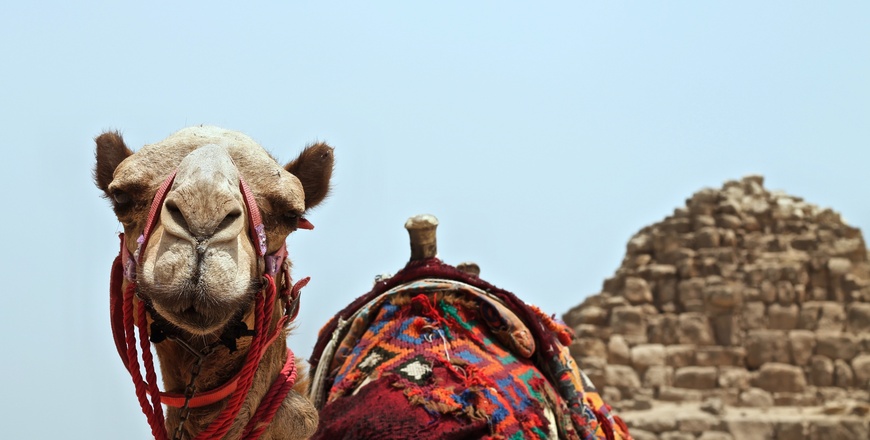North Africa is a collection of Mediterranean countries in the northern part of Africa. It officially comprises seven nations: Algeria, Egypt, Libya, Morocco, Sudan, Tunisia and Western Sahara. Together, these regions generate about 30% of Africa’s total Gross Domestic Product (GDP), which is not insignificant. Despite some local socio-political problems, tourism remains a key driver of North Africa’s economy. It creates many thousands of jobs too! Egypt, Tunisia and Morocco top the list, writes Afrinection's West Africa Ambassador Michael Alimo. Besides a steady stream of income, the sector employs between 500,000 and 1.1 million people per country.
Tourism is one of the fastest-growing and most interconnected sectors in the global economy, with a vast potential to boost a country’s GDP, investment climate, and employment situation. Like most other parts of the world, Africa depends on tourism. The 2016 report of African Tourism Monitor by the African Development Bank (AfDB) shows that the continent welcomed 1.186 billion international arrivals in 2015, 4.6% more than the previous year.
North Africa’s tourism arena is dominated by Egypt, Morocco and Tunisia.
EGYPT
Egypt, home of the ancient Pharaohs, is a dazzling destination for temples and tombs. The country ‘s tourism image is not all about history. From dessert trips and scuba diving to Nile cruises: the country has something for everyone. Besides this, Egypt accommodates beach lovers, city slickers (Cairo, the country’s biggest tourism hub), archaeology fans (Luxor), and those in search of the slow pace countryside (Siwa Oasis and Aswan).
What do the figures tell us? Egypt’s tourism sector serves roughly 14.7 million visitors, generates USD 12.5 billion dollars, contributes more than 11% of the country’s GDP and employs 12% of the workforce. However, in the first quarter of 2016, the number of foreign tourists fell by 40 percent, due to political and social instability as well as terror attacks.
MOROCCO
Morocco has stunning scenery featuring the Atlas Mountains, coastal villages and colourful towns. The country embraces all tourists and has something to offer everyone. Hotspots include its coastal areas, culture and history. Morocco’s political stability has been a driving force for the growth of its tourism industry: In 2016, it attracted more than 10.3 million international tourists with a possible GDP OF 20% and is the most visited North African country. Rabat is the top tourism hub in Morocco.
TUNISIA
Despite a turbulent recent past and militant attacks on holidaymakers, Tunisia’s tourism sector is recovering. The number of foreign arrivals in 2017 so far is up by 24%. Data suggests that 5.55 million tourists visited the country between January 1 and October 10, compared with 4.49 million in the same period last year. Tourism is set to account for about 8% of Tunisia’s GDP and is one of the country’s key employers.
If you liked this story, you will also like:
- Jessica Foumena from Cameroon: Helping mama Africa's daughter excel - Michael Alimo (Ghana)
- From the founder: Putting the King into Networking - Kifle Bantayehu
- Tacking youth unemployment in Africa with entrepreneurship - Daniel Muraga (Kenya)
- Meet five women who are making West Africa better through tech - Michael Alimo (Ghana)
- Delivery Science, one of Nigeria's top tech disrupters - Daniel Muraga (Kenya)







Psygon Services on Cleantech businesses to watch in 2024
John Dou Dou on Being Your Own Boss - Part 2
Friends for upcoming artist ltd on Crypto Fest 2022 Hosted by Bitcoin Events
ignatious mukombwe on Being Your Own Boss - Part 3
Muhondo Organic Farming Center on Woman power: Top 5 female change-makers in West Africa
Muhondo Organic Farming Center on Woman power: Top 5 female change-makers in West Africa
Muhondo Organic Farming Center on African Development Bank: Boosting African farming doesn't require aid but investing in agripreneurs
Warren Adams on Secure funding for your start-up like a pro: five tips
AfriTech Hub on AfriTech Hub: Increasing the STEM Workforce
TOBAINO FOODS on What does it take to be a millennial entrepreneur?